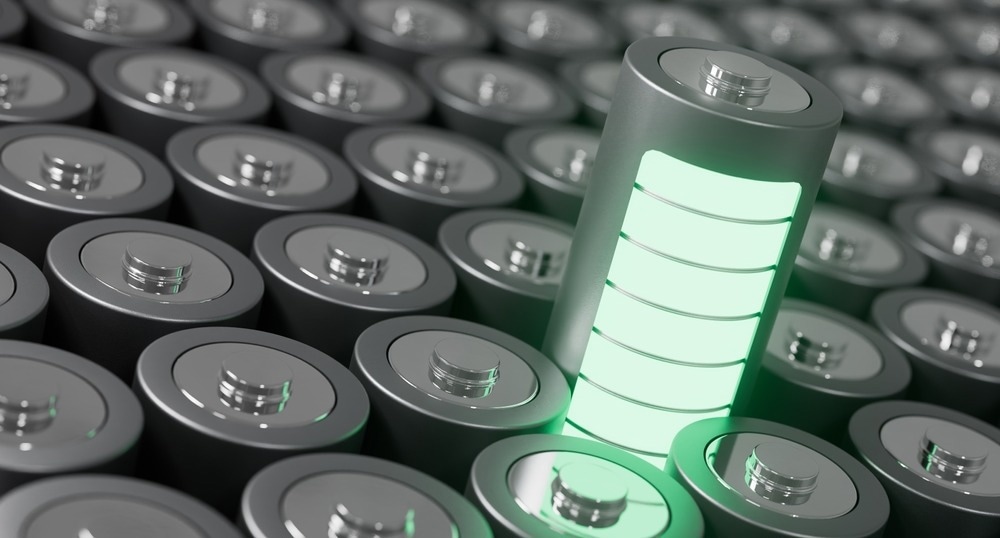A collaborative research team headed by Professors Lee Hong-kyung, Lee Yong-min, and Lee Ho-chun of the Department of Energy Science and Engineering, DGIST (President: Kuk Yang) created a new concept system that can significantly increase the stability and lifespan of next-generation batteries.

Image Credit: JLStock/Shutterstock.com
The concept could help address the tricky problem of dendrite growth in next-generation lithium metal batteries by converting liquid electrolytes to a dynamic state, advancing the commercialization of next-generation batteries.
Presently, most commercialized batteries like electric vehicles employ graphite electrodes as negative electrodes. Since it is heavy and takes up a lot of area inside the battery, a graphite negative electrode has limited energy density. Because this limits lengthy battery operation, there is an increasing desire for lighter and smaller anode material.
“Lithium metal” is gaining popularity as a next-generation anode material capable of resolving these issues. However, commercialization of lithium metal anodes is hampered by the formation of “dendrite,” a twig-shaped crystal that develops on the surface of the anode during the charging process of a lithium battery.
This is greatly influenced by the ion transport phenomenon in the electrolyte. In other words, when the ion transport velocity increases and the homogeneity improve, dendritic control becomes easier.
Constant efforts have aimed at reducing dendrite growth; however, it was required to break from the classical ion transport approach to develop a faster and more homogeneous ion transport method.
The researchers created a nano-spinbar (NSB) that reacts to an external magnetic field and is added to the electrolyte solution to produce micro-convection. In reality, by using an external rotating magnetic field to transmit power remotely, it is possible to rotate NSBs scattered throughout the electrolyte. As a result, it enhanced fast ion transport while decreasing ion diffusion by approximately 32% compared to the previous technique, allowing for homogeneous ion transport.
The dynamic ion transport achieved through the application of magnetic nanoparticles (NSB) and an external magnetic field can enhance the quick and uniform movement of lithium ions, and it has been shown that it is efficient in preventing dendrite development and growth even at high charging rates.
When they were mixed with other electrolytes, they had the same effect. If a lithium metal battery is made with the electrolyte produced by this study team and used with a rotating magnetic field on the outside, it can much outlast the current system.
It is a new concept electrolyte system that can create a dynamic electrolyte that has never been attempted before and change the paradigm of electrolyte research through magnetic nanoparticles. It can be immediately applied to various electrochemical systems using liquid electrolytes.
Lee Hong-kyung, Professor, Department of Energy Science and Engineering, Daegu Gyeongbuk Institute of Science and Technology
Moreover, this research was selected as the cover study in the July 22 issue of “Advanced Functional Materials,” an international publication in the field of materials engineering, in recognition of its brilliance.
The Ministry of Trade, Industry, and Energy’s Industrial Technology Innovation Project and the POSCO TJ Park Foundation, as well as the National Research Foundation of Korea’s Excellent New Research, Basic Research Laboratory, and Nano and Materials Technology Development Projects, funded this research.
Journal Reference:
Lim, M., et al. (2022) Dynamic Ionic Transport Actuated by Nanospinbar-Dispersed Colloidal Electrolytes Toward Dendrite-Free Electrodeposition. Advanced Functional Materials. doi.org/10.1002/adfm.202204052.